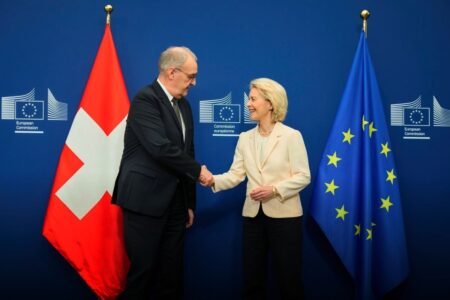— last modified 31 May 2018
Commenting on the country-specific recommendations (CSRs), issued last week by the European Commission as part of the European Semester process, EuroCommerce Director-General Christian Verschueren, said:
“As the biggest private employer in Europe, retail and wholesale are a major factor in the EU economy. They are uniquely exposed to wide-scale regulation and suffer when this goes wrong. Regressive taxation and regulation, such as the French local property tax TASCOM, and, in a number of Member States, protectionist policies against foreign retailers, are holding back growth and harming consumers. Meanwhile manufacturers carve up the Single Market to the detriment of consumers and raise prices in some countries such as Belgium. These are not just missed opportunities for our economies, but every unnecessary barrier means real costs for consumers and a block on new jobs for many thousands of Europeans. The CSR exercise highlights these problems, and should be followed up with real action by Member States and where they are in breach of EU law, enforcement by the Commission.”
Retail and wholesale support the European Semester process, but it needs to go further. The recent Commission Communication ‘A retail sector fit for the 21st century’ was an important step towards a better understanding of the significant drivers of retail competitiveness. It showed the cumulative impact of unnecessary national and local regulation and barriers. It underlined the importance of national and local authorities acting to meet the needs of retail, and thinking hard about the measures they impose. The Commission rightly pointed to the positive spill-over effect that the right policy decisions will have on other business sectors. This needs action, both to persuade Member States to think hard about the burdens they impose on retail and wholesale, and pursue actively measures incompatible with EU law, which not only harm consumers, but are a drag on the competitiveness of the country’s whole economy.
In the light of this, it is disappointing that only five CSRs mention retail and wholesale – Belgium, Denmark, France, Hungary and Italy. In Belgium, it found regulatory restrictions weighing on the sector’s performance and deterring investment. Prices for many product categories continued to be higher than in the neighbouring countries, as pointed out in the Benelux study published last week and in the Commission communication on retail last month, because, in part, of the fragmentation of the Single Market by large brands with territorial supply constraints. This is not what the Single Market should be about, and as pointed, it causes real problems where consumers in some countries perceive that they are being given a worse deal than others in the quality or price of what they buy.
In Denmark, the Commission found competition in several domestically-oriented services sectors weak, including retail and wholesale. The Commission saw competition in France hampered by burdensome regulatory and administrative requirements, and excessive entry restrictions. EuroCommerce and its French member have also pointed on numerous occasions on the distortive effect on competitiveness of bricks-and-mortar stores of TASCOM, the local property tax based on floor area. Hungary was again highlighted as imposing major regulatory barriers and an unpredictable legal environment on retail, impairing its performance, productivity and innovation. In Italy, the CSRs pointed to significant regulatory barriers to competition in certain sectors, including retail.
This year’s CSRs, however, does not give the full picture: retail restrictions and burdensome regulation in, for example, the Czech Republic, Poland, Romania and Slovakia are not mentioned in their CSRs. The Communication on retail cited above underlined the negative effect of such regulation, and that blocking competition in retail and wholesale has a negative spill-over effect on other sectors like business services, and the producers of the food and other products they sell.
Verschueren added:
“CSRs are a useful tool. In the face of a Single Market under ever-growing threat from protectionism, we need to convert them into urgent action for change at national and EU level: European growth is set to tail off in the coming years, and the Single Market is the engine that can drive our global competitiveness, yet short-sighted national regulation is starving it of the fuel it needs to do this.”







